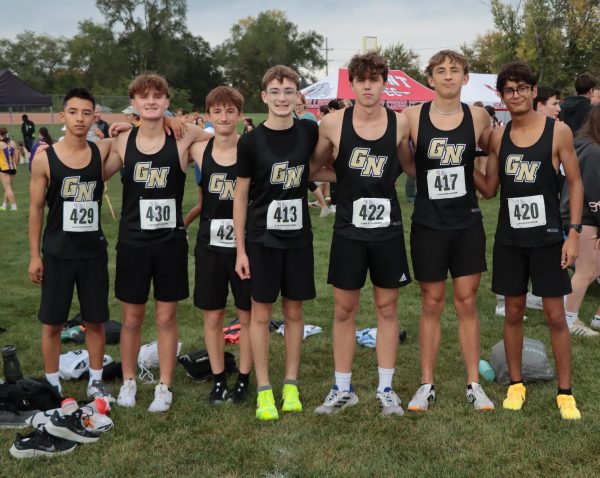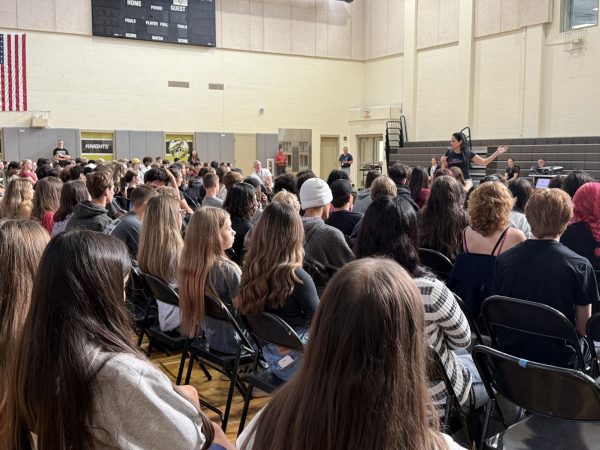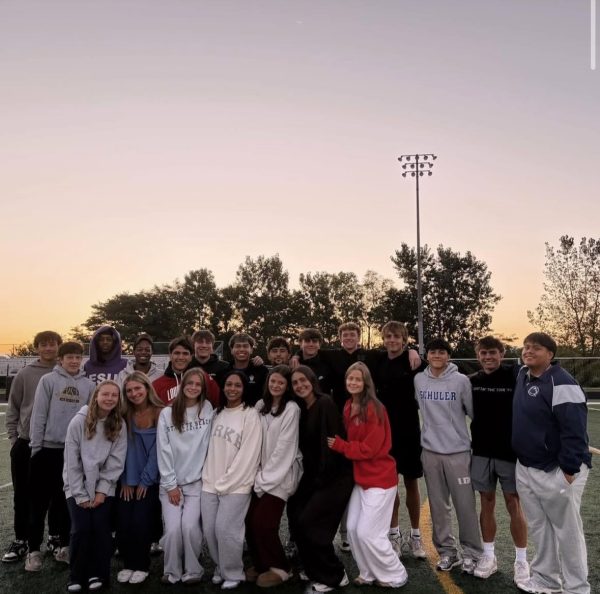Staff engages in Deep Equity training
Deep equity, a practice that encourages conversations around dismantling systemic oppression, has been an important part of North’s ways of improving both student and staff life. The district administrators along with Principal James Roscoe have done both a district and school-wide push for equity training for teachers. This year North has done more work to promote tolerance and make sure the school is welcoming to staff and students.
“I think Grayslake North does a wonderful job promoting inclusion and tolerance, but there are times when we have to be a little more deliberate in those teachings,” Roscoe said. “We want to make sure that people understand the severity of these events and what they mean and how it offends. And we’re not sure that students always understand. So we want to make sure we follow up obviously, and just to bring awareness, right, bring knowledge, and hopefully, some learning and teaching goes along with it. Because it not only impacted students it impacted adults too. So we always know what it means. And most importantly, how it impacts people,” said Roscoe.
In an email sent by Dr. Mikkael Storaasli in May last school year in response to an antisemitic incident, the district said that they would be having conversations with the Anti-Defamation League and the Illinois Holocaust Museum. These conversations were for the district to learn from an event like this and what they could do to better school life and the curriculum to support students and staff.
“The district has taken some initiative in working on equity and diversity. So we’re now part of what’s called Deep Equity. And I think all of that plays into helping us help students become more informed and really just celebrating differences. So that was Dr. Storaasli, that piece in the district office, because basically North had already dealt with them [both organizations], unfortunately, based on some past events,” Roscoe said.
The school’s push to make students not only supported but better represented in the curriculum is a big part of Deep Equity. The district wants all students to be able to see themselves in the media that is being taught and not just stories from the same point of view.
“And it’s really a movement for us to become more equitable. I’d love for every student to be able to see themselves in the novels and the books. That’s what we’re utilizing in the building. So that’s been a curriculum push overall, not just with this specific incident, but that’s also part of our deep equity work. How do we get more kids to see themselves through the authors, right, through the stories, through our historical texts?” Roscoe said.
Teachers who have been part of these equity trainings have thought they were very helpful and important for everyone to learn. Not only does it allow everyone to educate themselves on different topics, but it also allows them to interact with different staff members in the building they might not have otherwise.
“We’ve done some interesting things about the history of our names and origins and things like that, so it’s been great getting to know each other and ourselves at a deeper level that way,” said teacher Josh Feinzimer.
Students in the school who haven’t yet started learning about Deep Equity like teachers have are seeing changes the school is making to make sure that more people are given opportunities in school. Student leaders like Rebekah Monciaviz, who is a leader in a student equity group called Knights Way, have seen more improvements in life at North. But there is always more things to improve to make school a better place.
“I think the school is starting to [improve]. It’s definitely a good start, but there’s still a lot more change to come. I think groups like Knights Way make them more large-scale so that students could have more input. I think that would help a lot more,” said senior Rebekah Monciaviz.
Monciviz thinks that an important part of growing from events like this and more tolerance would be helpful for more students to learn. This deeper level of understanding would allow more students to understand their actions and words.
“I think there’s a lot of history that specifically textbooks overlook, and I had specific teachers like Mrs. Bristow who also try and go more in-depth. But I don’t think their curriculum even touches the surface of what has happened to minority groups and that’s why kids are so insensitive about it,” Monciaviz said.





